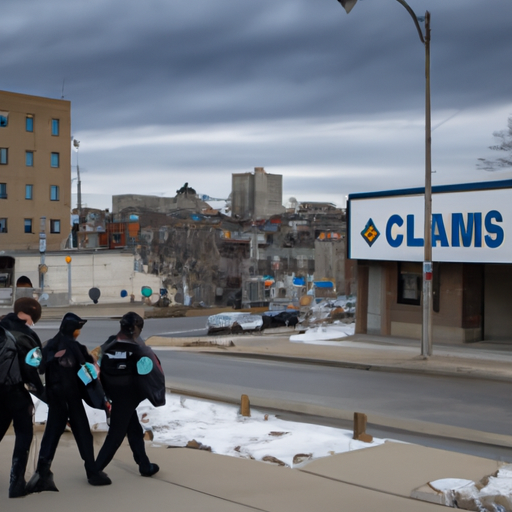Increased Police Presence: A Response to the Worsening Canadian Opioid Crisis
In recent news, opioid-related deaths continue to soar within the community, necessitating urgent and calculated actions from all stakeholders. CTV News Barrie’s recent article on this conversation provides a snapshot of the devastating effects of the opioid crisis and the actions being taken to combat it. Let’s delve into the multifaceted issue.
The Dire Effects of the Opioid Crisis
The escalation of the opioid crisis exponentially affects an array of societal intricacies, as noted explicitly in the piece. As Chief Kimberley Greenwood of Barrie Police Service states, the increased usage of opioids is linked directly with crime rates, especially petty thefts, as addicts struggle to fund their habits. Such crimes undermine public safety in various ways, such as fueling fear and intra-community distrust.
Moreover, the opioid crisis intensifies the number of homeless persons. People grappling with opioid addiction often find it challenging to maintain stable housing and employment, a fact reflected in the growing number of homeless persons on the streets of Barrie. As Greenwood notes, this homeless rise adds an extra layer of complexity to the opioid crisis, which necessitates heightened police presence.
Combatting the Opioid Crisis: A Multi-Pronged Approach
The article starkly highlights the need for more inclusive, multi-disciplinary, and comprehensive approaches in combating the opioid crisis. As Greenwood indicates, law enforcement agencies, healthcare providers, community outreach programs, and individuals must unite efforts to help alleviate the harrowing impacts of opioid usage.
Greenwood’s call for increased police visibility signifies a proactive response to the opioid crisis but should not be the only solution. The police’s role in presiding over public safety is unarguable; however, addressing the opioid crisis extends beyond law enforcement. We need to decipher root causes and address them directly to mitigate this crisis effectively, and so that the police do not bear the brunt of this societal issue.
Key Points from the Article:
- The link between opioid usage and rising crime rates emphasizes the urgent need for increased police presence.
- The correlation between the opioid crisis and homelessness surges signifies the multi-dimensional complexity of the issue.
- Response to the opioid crisis should involve a multi-faceted approach, including community outreach programs, healthcare providers, individual efforts, and law enforcement agencies.
- Increased distribution of naloxone kits, a drug used to reverse opioid overdoses, is necessary in combating opioid-related deaths.
- The Canadian government’s commitment to joining the opioid class action to sue pharmaceutical companies producing these addictive painkillers indicates a readiness to fight the crisis on all fronts.
Conclusion
In summary, the unpreceded rise in opioid usage has far-reaching effects on public safety, homelessness, crime rates, and overall community wellness. The need to amplify public safety efforts, primarily through the police, is essential albeit a fraction of a broader, deeper approach needed to tackle the opioid crisis effectively. As Greenwood indicates, inter-sectoral collaboration, incorporating healthcare providers, community initiatives, and the general public, will offer formidable pushback against the relentless opioid crisis.
The opioid class action suit against pharmaceutical companies underscores the criticality of this issue and is a noteworthy step towards holding these companies accountable. Furthermore, equipping at-risk communities with naloxone will significantly reduce opioid-related deaths. The opioid crisis is a devastating, ever-evolving epidemic that demands our undivided attention, utmost urgency, and, importantly, synergy.
